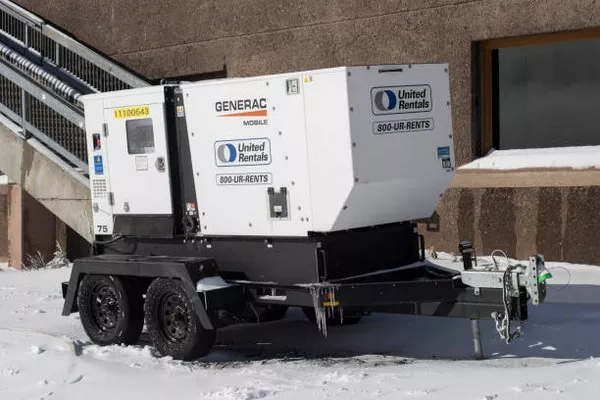As the scorching summer months roll around, the need for a reliable power source to keep your air conditioner running becomes paramount. Power outages can disrupt our daily lives and make the sweltering heat unbearable. In such situations, a generator can be a lifesaver. However, not all generators are created equal, and selecting the right one to run your air conditioner efficiently is essential. In this article, we’ll explore the factors to consider when choosing the best generator for your air conditioning needs.
Why Use a Generator for Your Air Conditioner?
Before delving into the details of selecting the best generator, let’s briefly discuss why using a generator for your air conditioner is a wise choice:
Comfort: A generator ensures that you can enjoy a comfortable indoor temperature during power outages, especially in hot and humid climates.
Health: Extreme heat can pose health risks, particularly for the elderly, infants, and individuals with certain medical conditions. A generator helps maintain a safe environment.
Protection of Appliances: Power surges and fluctuations during outages can damage sensitive electronic components in your air conditioner and other appliances. A generator provides stable power, safeguarding your equipment.
Convenience: Generators can power other essential household appliances, such as refrigerators, lighting, and communication devices, ensuring that your daily routines are minimally disrupted.
Now, let’s explore the key factors to consider when selecting the best generator for your air conditioner:
Power Requirements
Determining the power requirements of your air conditioner is the first step in choosing the right generator. You’ll need to know the unit’s cooling capacity, usually measured in British Thermal Units (BTUs) or tons. Most air conditioners have a label indicating their power consumption, which can help you calculate your generator’s needs.
It’s important to consider the starting (surge) power and running power. Air conditioners often require a higher initial surge of power to start the compressor before settling into a lower continuous power consumption while running. Ensure that the generator you choose can handle both these power demands comfortably.
Generator Size and Type
Generators come in various sizes and types, with the most common options being portable and standby generators:
Portable Generators: These generators are typically smaller, easy to move, and more affordable. They are ideal for running a single air conditioner unit and a few other essential appliances during short power outages. Portable generators come in different wattage ratings, so choose one that can handle your air conditioner’s power requirements.
Standby Generators: Standby generators are permanently installed and provide a more robust and seamless solution for powering your entire home, including multiple air conditioning units. They are designed to automatically kick in when the main power supply fails, making them a convenient and reliable choice for longer outages.
The size and type of generator you choose will depend on your specific needs and budget.
Fuel Type
Generators can run on various fuels, including gasoline, propane, natural gas, and diesel. Your choice of fuel should align with factors such as fuel availability, storage, and convenience. Propane and natural gas generators are known for their reliability and cleaner emissions. Diesel generators offer fuel efficiency, while gasoline generators are typically more affordable but may require more maintenance.
Consider your local fuel availability and the generator’s runtime on a full tank when making your decision.
Runtime and Fuel Efficiency
The runtime of a generator on a full tank of fuel is a crucial factor to consider, especially during extended power outages. Calculate how long you expect the outage to last and ensure your generator can provide power for the required duration. Some generators offer fuel-saving features, such as an eco-mode, which can help extend runtime by adjusting power output according to load.
Noise Level
Generator noise can be a significant concern, especially if you live in a densely populated area or prefer a quieter environment. Check the decibel rating (dB) of the generator you’re considering. In general, inverter generators tend to be quieter than conventional open-frame generators.
Transfer Switch
If you’re installing a standby generator to power your air conditioner, you’ll need a transfer switch. This device connects the generator to your home’s electrical panel and ensures a safe and automatic switch from the main power supply to the generator during an outage. Make sure the transfer switch is compatible with your air conditioner and other appliances.
Brand and Reliability
Choosing a reputable generator brand known for durability and reliability is crucial. Research customer reviews and ask for recommendations from trusted sources or professionals in the field. A reliable generator brand can provide peace of mind during power outages.
Conclusion
Selecting the best generator to run your air conditioner involves careful consideration of factors like power requirements, generator size and type, fuel type, runtime, noise level, transfer switch compatibility, and brand reliability. Investing time in research and assessing your specific needs will help ensure that you make an informed decision that keeps you cool and comfortable during power outages. Remember that safety should always be a top priority when operating a generator, so follow the manufacturer’s guidelines and consult with professionals if needed. With the right generator, you can maintain a comfortable living environment even when the power grid fails to deliver.

